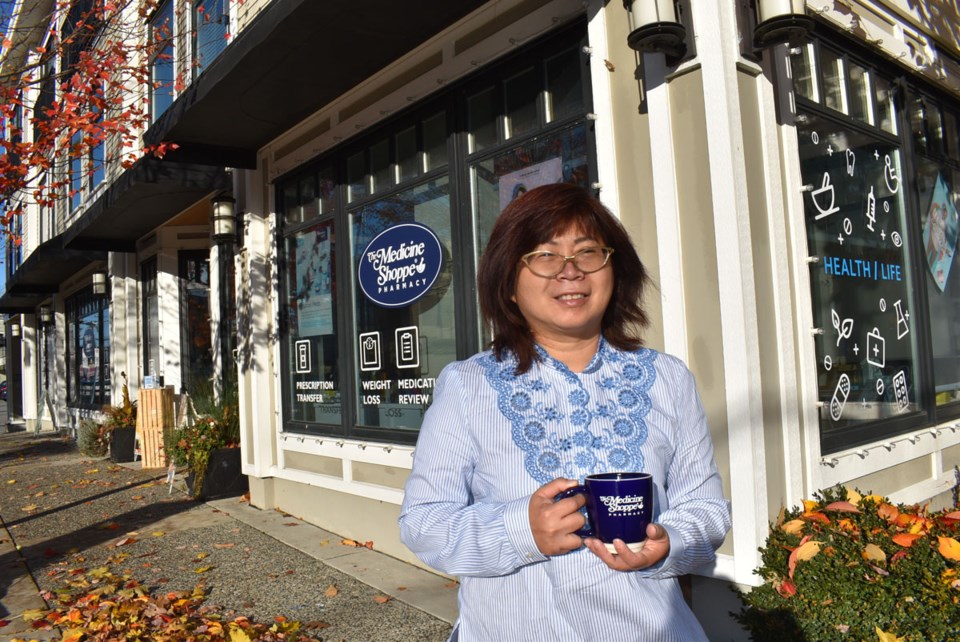She suffered postpartum depression after the birth of her second son, her marriage had long since broken down and her career as a psychiatric nurse had fallen apart.
Suffice to say, Lira Lee was in a dark place, both mentally and physically, given she was cooped up alone in a “dungeon-like” basement suite in Richmond.
For longer than she can remember, the mother-of-two young sons had been sleeping 14 hours a day and barely had the energy or motivation to get out of bed.
In fact, the canvas of Lee’s mid-life had been taking shape with the aforementioned picture for the best part of eight years.
“I was struggling. In 2007, I was diagnosed with depression while still being a psychiatric nurse in geriatrics, with Vancouver Coastal Health,” said Lee, who had been a nurse of 10 years to that point.
“I was trying to do a gradual return to work, but I couldn’t handle the stress. I was really depressed. I was living in a tiny, dark, basement suite.”
Lee, now 47, who had by this time lost custody of her two sons to her ex-husband and lost her father, said her basement was so dark, she couldn’t even read.
Just when she thought her life couldn’t get worse, however, a simple referral by her doctor turned her life around in a day.
“I was referred to Pathways Clubhouse about four years ago by my doctor,” said Lee, referring to the Richmond-based non-profit, which supports people living with mental illnesses.
“I was worried, though, because I was a nurse and I was worried about the stigma. Being a psychiatric nurse before, I know people get judged and I was scared of that.
“I was nervous at first, but people are so friendly (at Pathways) and appreciative. When I met people there, they would listen to me. I came on leaps and bounds.
“That first day, when I left, I wanted to go straight back. It turned my life around.”
Feeling wanted
Pathways, added Lee, made her “feel important and wanted” and, given she was living on disability benefits, she was rarely able to get out and socialize.
“At Pathways, I was able to meet people, volunteer, get a cheap, healthy lunch and learn new skills, such as secretarial, janitorial and computer.
“They remember your birthday and send cards. They do a lot of little things that mean a lot to people in my situation. And they don’t judge.”
What Pathways also does is get people back on their feet with a new job, thanks to its Transitional Employment Program.
And it was that very support that Lee attributes for her truly feeling part of the world again, with her working as a pharmacy assistant at Steveston Medicine Shoppe for the last two years.
“They referred me to the pharmacy about six months (after that first day). I started at four hours a week,” said Lee, who hadn’t been able to work for eight years.
“The boss was very confident in me and there was no pressure.
“I was nervous, because I hadn’t worked for so long and hadn’t worked in a pharmacy before. I now work four days a week. I can give flu injections.”
Lee, who also now works part-time as a mental health worker and has a fiancé of 18 months, said having the job makes her “feel useful” and helps her “get up every day. It gives me structure and is very rewarding.”
Pathways finds purpose
Dave MacDonald, executive director at Pathways Clubhouse, said Lee’s comeback story is a textbook example of what his organization strives to do.
“We find a lot of folks need purpose to their day; sometimes that’s the start of anyone’s recovery, having that feeling of being needed and wanted,” said MacDonald.
“And we actually do need them, as we intentionally keep the staffing levels at our clubhouse low, so the members can help us and be engaged.
“That’s very important. Their participation is voluntary, but we do really need them.”
MacDonald said he recognizes the pivotal role Pathways’ Transitional Employment Program plays in getting its members on the road to recovery.
Before COVID hit, the non-profit had around 20 employers involved in the program, but now it has just eight, with another 31 members working independently, with the help of Pathways.
Of Lee’s position at Steveston Medicine Shoppe, MacDonald said, prior to the pharmacy joining the program, it had a heavy administritive back up, so they decided to give the program a try.
“We matched Lira with them due to her medical background and they quickly expanded her role,” explained MacDonald.
“They actually came last year to (the clubhouse) to give us all flu shots and it was Lira who gave me my shot.”
He acknowledged that Lee’s recovery had gone full circle, having arrived at Pathway’s at the lowest point of her life, to giving a flu shot to MacDonald.
“You have to give her so much credit. She’s the one who took advantage of the opportunities,” MacDonald noted.


.jpg;w=120;h=80;mode=crop)
